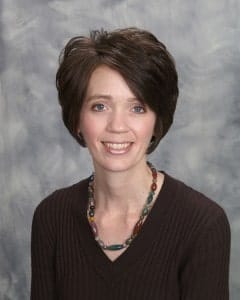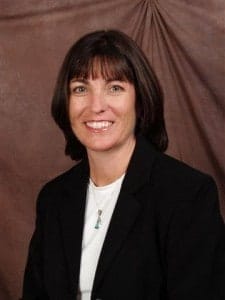

By Meigan Robb and Teresa Shellenbarger
The nursing profession today has evolved from the days of Florence Nightingale and domestic service. Nurses now lead front-line developments that influence the health outcomes of patients and ultimately the health of the nation. The traditional view of the nurse as bedside caregiver has evolved. Nurses now play a pivotal role in addressing the demand for safe, high-quality, and effective health care as nurse scientists, nurse researchers, and expert clinicians. Nurses are leading the way to advance health initiatives on a national level with specialty skills directed towards leadership, administration, education, and informatics. This array of skilled nursing professionals contributes in meaningful ways to positively influence patient outcomes.
While exciting opportunities lie ahead for nursing, the profession faces some serious challenges. Now is the time for leaders to focus on developing a diverse group of professionals who are adequately prepared to address the changes that will result from the reform of our nation’s health care delivery system. Without considering the infrastructural changes that need to occur, nursing may not be able to continue this forward development of the profession. Ultimately having an appropriate array of qualified skilled nursing providers helps to ensure enhanced patient safety, lower mortality, and improved patient outcomes. Numerous research studies reported by the American Association of Colleges of Nursing (AACN) provide evidence that nursing education levels impact patient outcomes. A recent international report authored by Linda Aiken and colleagues suggests that quality patient care hinges on a well- educated nursing workforce and that an increased emphasis on bachelor’s prepared nurses may reduce preventable hospital deaths. Nurse leaders need to embrace the findings that suggest that a better educated and adequate sized nursing workforce will help to keep pace with health care demands and help to ensure the quality of care provided to patients.
Nurses should be encouraged to develop lifelong learning practices. Many within the profession should consider pursing education that will prepare them to assume advanced practice roles. The recent transition to the Doctorate of Nursing Practice as the advanced terminal degree in nursing is important to the advancement of the profession. These advanced practice nurses prepared at the doctoral level are experts in population-based practice. Many are filling the gaps in the health care delivery system by providing care to the elderly, chronic ill and those in rural and underserved areas. Even though enrollments in these advanced degree programs continue to grow, graduations still remain inadequate to meet the growing workforce demand. Employers and those in higher education need to re-examine factors that impede as well as facilitate continued education. Working collaboratively it is important to ensure that education is seamless, accessible, affordable, reasonable, and appropriate. A sense of community should be promoted and enhanced resources should be offered to help individuals develop professionally. Financial support may be needed to assist nurses who want to continue their education. Additionally, those working with nurses need to devise creative and innovative approaches that will assist nurses in gaining access to continued education while meeting the multiple role demands they face.
To meet the growing demand for further education, academia faces some challenges that also must be addressed. The ongoing faculty shortage threatens the educational infrastructure by placing unrealistic demands on the overburdened available faculty educators. Recently released data from the American Association of Colleges of Nursing suggest that schools of nursing face a national nurse faculty vacancy rate of over 8 percent. This vacancy, coupled with the aging educator workforce, if unaddressed, may lead to even greater obstacles in meeting education needs of nurses. More educators need to be prepared to assume faculty positions in the future and fill these critical roles.
Given the changes expected in health care and patient demographics, leaders need to consider the educational preparation of the nursing work force. Collaboration needs to occur amongst all members involved in the nursing profession to develop effective ways to ensure nurses can successfully obtain continued education. While the essential characteristics and goals of nursing remain unchanged, the vision and future contributions of the profession will be dynamic.
Dr. Meigan Robb is an Assistant Professor of Nursing at Chatham University, Pittsburgh, PA. She can be reached at [email protected]
Dr. Teresa Shellenbarger is Professor and Doctoral Program Coordinator, Department of Nursing and Allied Health Professions, Indiana University of Pennsylvania, Indiana, PA. She can be reached at [email protected]
Throughout the year, our writers feature fresh, in-depth, and relevant information for our audience of 40,000+ healthcare leaders and professionals. As a healthcare business publication, we cover and cherish our relationship with the entire health care industry including administrators, nurses, physicians, physical therapists, pharmacists, and more. We cover a broad spectrum from hospitals to medical offices to outpatient services to eye surgery centers to university settings. We focus on rehabilitation, nursing homes, home care, hospice as well as men’s health, women’s heath, and pediatrics.







